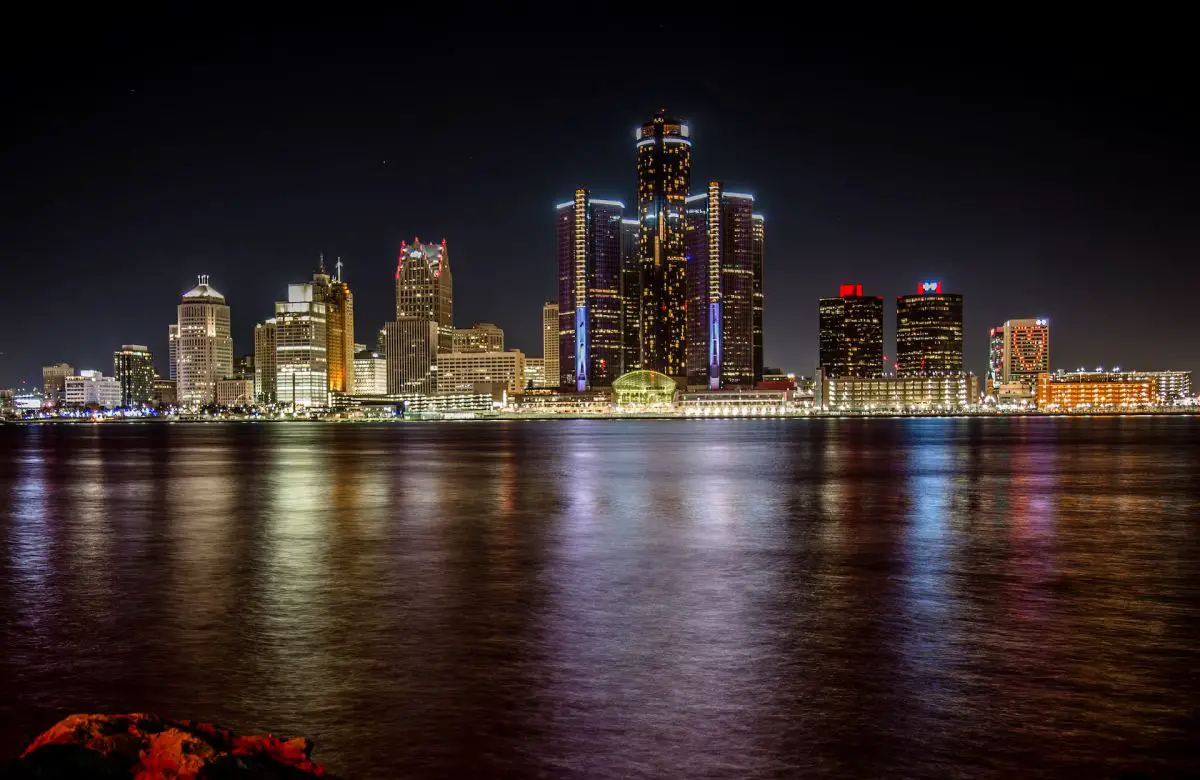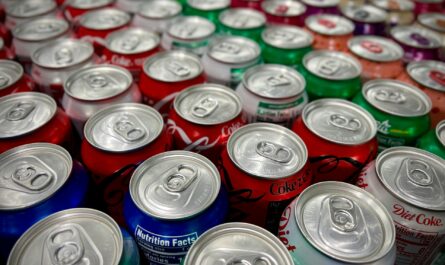Can you drink tap water in Detroit? It’s a common concern for most people living around Detroit. However, if you remember the Flint water crisis or are considering moving to Detroit, you may experience the same level of anxiety.
Unfortunately, the answer is unclear. You should think twice about drinking tap water as it contains measurable levels of lead, copper, and many other contaminants. Alongside them, the chlorine level used to treat Detroit’s tap water is quite high.
In short, if you don’t want to go through minor to severe health-related issues, you should avoid drinking tap water in Detroit. Want to know more about Detroit’s tap water and why it’s not safe? Stick to this article to discover all the reasons and aspects.
Table of Contents
Is Tap Water Safe To Drink?
In most developed countries, it’s safe to drink tap water. But there are places where it’s only safe to drink tap water by filtering it. And to ensure that your tap water complies with drinking water safety requirements, you need to contact your local authority.
There are many places like Detroit where the tap water could be contaminated with harmful elements like chromium, nitrate, pathogens, bacteria, and many more that can make people sick.
Therefore, always be cautious whenever you are thinking of drinking tap water. However, you can use a quality water filter to get rid of harmful contaminants, and you don’t want to get sick.
What Is The Source Of Detroit’s Tap Water?
There is no single source of Detroit’s tap water, and the Detroit Department of Sewerage (DWSD) system collects water from multiple sources such as Lake Huron and the Detroit River.
Basically, water from the Detroit River is taken through the Bell Isle Intake and then purified at the Northeast and Springwells plants. On the other hand, water taken from Lake Huron is purified in the Lake Huron Treatment Plant.
Although there are multiple sources and purifying systems, Detroit’s tap water is not that safe to drink. The authority has yet to be capable of reducing harmful contaminants in Detroit tap water.
Therefore, make sure you think twice before drinking tap water in the Detroit area.
Can You Drink Tap Water In Detroit?
You already have a brief idea why you shouldn’t drink tap water if you live in Detroit. In this section, I’m going to discuss this aspect in great detail. There have been past concerns about contaminants in the tap water in Detroit.
Regrettably, the authority has yet to reclaim these issues. This city’s tap water still contains a lot of harmful contaminants, which you can check for. ewg.org/tapwater.
For example, we’re going to take the city of Detroit, where more than half a million people live. If you run a test through the provided website, then you’ll see what contaminants live in the tap water of Detroit.
Contaminates Found in Detroit Tap Water
Here are some of the examples of contaminants that we found after a test:
Chromium (hexavalent):
The chromium (hexavalent) concentration in Detroit’s tap water is more than five times higher than the EWG’s recommendation. Detroit’s tap water has 0.116 ppb of chromium, while the EWG’s suggestion is 0.02 ppb. An excess of chromium can cause health problems such as cancer.
Haloacetic acids (HAA5)†:
Next substance we discovered in the tap water was haloacetic acid (HAA5). Detroit’s tap water contains 127x more haloacetic acids (12.7 ppb) than the safety guideline provided by the EWG (0.1 ppb). This is also a key culprit that can lead to cancer.
Haloacetic acids (HAA9)†:
Detroit contains 335x more Haloacetic acids (HAA9) (20.1 ppb) than the limitation provided by the EWG (0.06 ppb). High levels of haloacetic acid can cause cancer and many other health-related diseases.
Nitrate:
The amount of nitrate found in Detroit’s tap water is high enough to cause cancer. Detroit’s tap water contains 0.573 ppm nitrate, while the EWG shows that drinking water with 0.14 ppm is safe.
Radium, combined (-226 & -228):
Detroit tap water has 0.59 pCi/L of radium, combined, while the EWG suggests only 0.05 pCi/L of concentration, which makes the water safe to drink. And radium, combined also a key reason to cause cancer.
Total trihalomethanes (TTHMs)†:
The total trihalomethanes in Detroit tap water are 198 times higher than the EWG recommends for water. You’ll get 29.7 ppb of total trihalomethanes in Detroit’s tap water, where the acceptable limit is 0.15 ppb. And drinking water with a higher level of total trihalomethanes will definitely lead to cancer.
Some Other Types Of Contaminants:
There are many other types of Detroit that are found in Detroit’s tap water at a higher level than the standard level. Such as fluoride, which can cause neurological issues, arthritis, and so on. Barium, strontium, and many other contaminants that stay in Detroit can surely make you sick or cause serious health issues.
Note: These are some of the major contaminants found in the tap water in Detroit. Although most contaminants have higher legal limits than EWG indicates, it’s not a good idea to disregard EWG’s statistics.
How to Get Contaminants Out of Tap Water?
Fortunately, there are ways you can follow to remove contaminants from the water that comes out of your faucet. Here are some ways, such as:
Filtering the Water:
Using a water filter is one of the best ways to get rid of contaminants in water. You can use reverse osmosis filters, carbon filters, ceramic filters, and so on.
Ultraviolet (UV) disinfection:
Using ultraviolet disinfection to kill contaminants such as bacteria, viruses, and other pathogens in tap water is one of the most important methods. You can set a UV disinfection device on your main water line for whole-house treatment.
Distillation:
In this method, water is heated to produce steam, which is then cooled to produce purified water. Heavy metals and other contaminants can be removed by distillation, but the process can be energy-intensive.
Chlorination:
Chlorine can be an effective solution to eliminating bacteria, viruses, and other microorganisms. Although chlorine can remove pollutants from water, it can also give the water a chlorine flavor.
Chlorine is a powerful disinfectant that can be used to kill bacteria, viruses and other microorganisms. Chlorination can effectively eliminate impurities from water, but it may leave a chlorine taste in the water.
Ozonation:
Ozone is a potent oxidant that can be used to eliminate chemical pollutants, destroy bacteria, and eliminate taste and odor issues. This method can be used with other techniques, including filtration, to offer a more thorough kind of treatment.
Note: It’s crucial to remember that the right technique will vary depending on the precise contaminants in your water. It’s always a good idea to seek advice from a specialist or a water treatment business to choose the approach that will work best for you.
Detroit Water Quality Rank: Customer Satisfaction
According to a report made by the Detroit News in 2019, the Detroit Water and Sewerage Department had a customer satisfaction rating of 702, below the average of 711 for Midwest utilities. With scores of 759 and 742, respectively, Indiana American Water and Missouri American Water came in first and second place in the Midwest.
Closing Thoughts: Can You Drink Tap Water In Detroit?
Now you have a pretty good idea about Detroit tap water and whether it is safe to drink. So, if you don’t want to go through any health-related issues, you should avoid drinking directly from the tap. However, you can follow the procedures included in this article to remove contaminants from water.
Video: See How The Great Lakes Water Authority Cleans Our Water
Discover more from Thumbwind
Subscribe to get the latest posts sent to your email.




